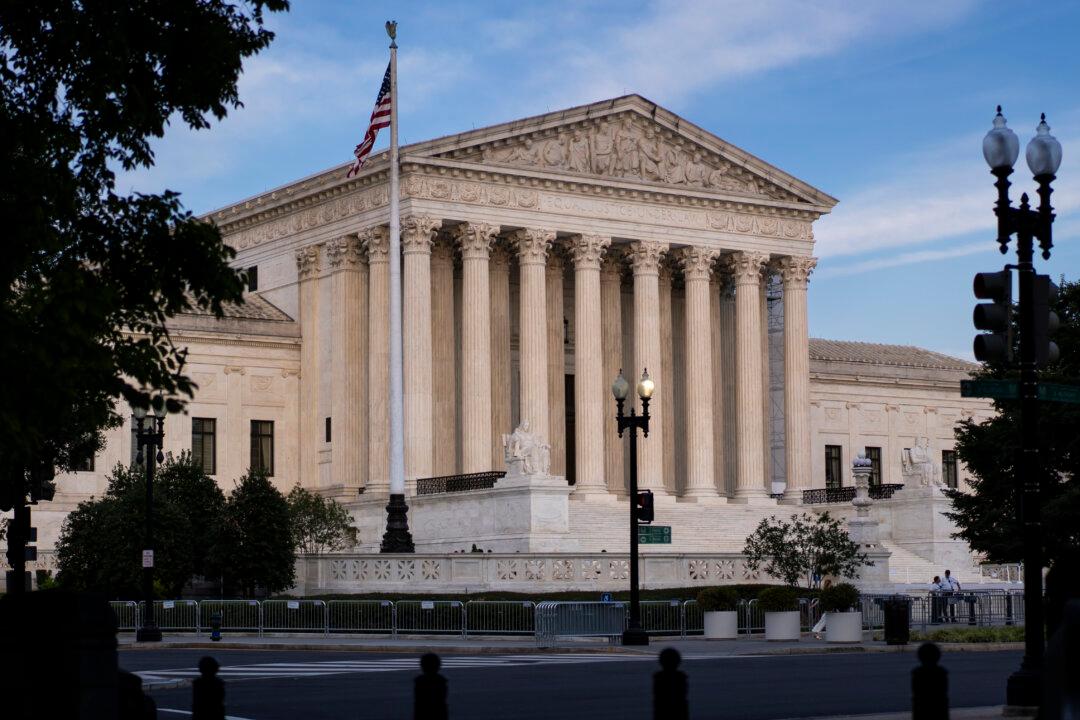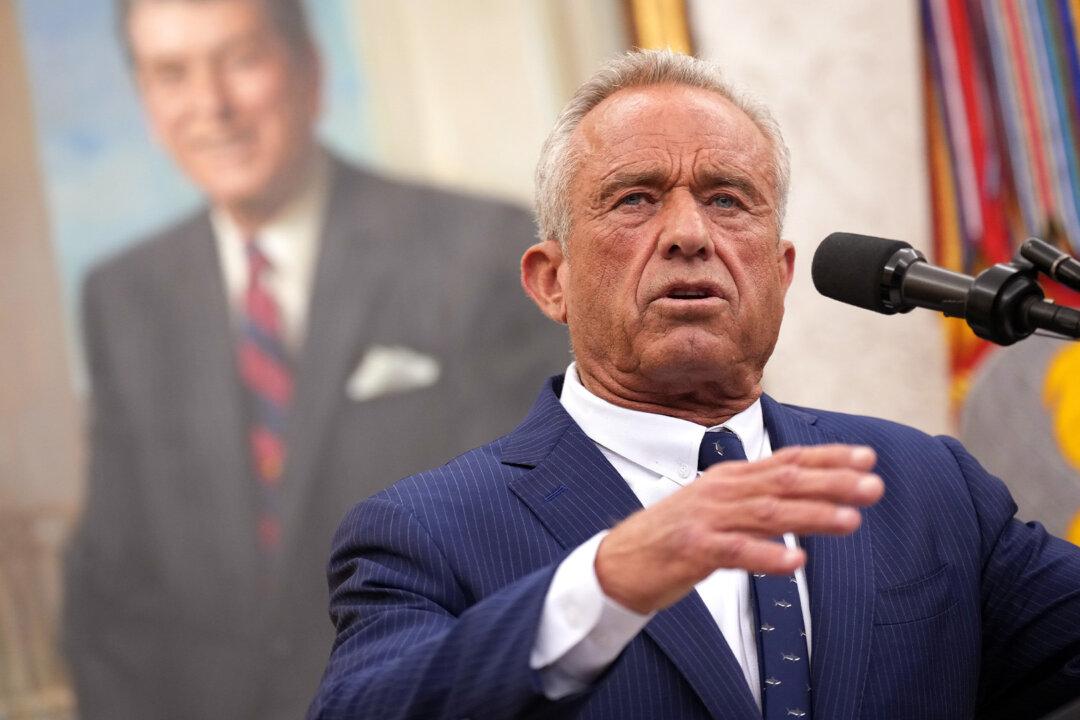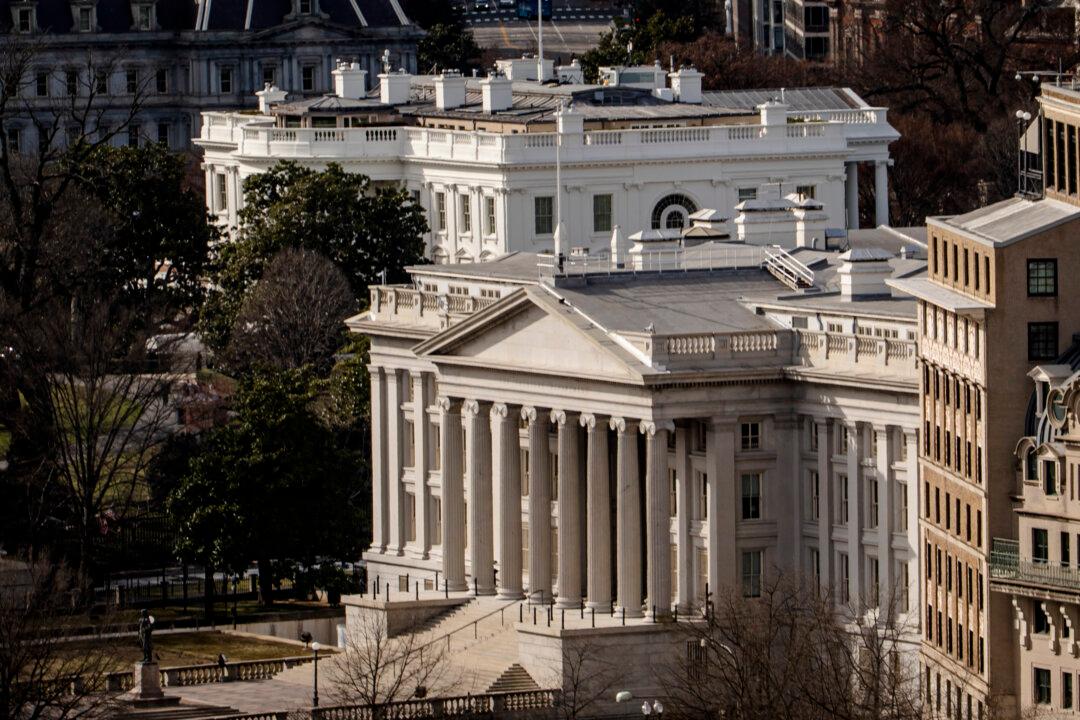Good morning, and welcome to The Epoch Times News Brief for Saturday, June 29, 2024. I’m Bill Thomas, there’s a lot going on in the world, and here’s a look at our top headlines.
The Supreme Court overturns a major precedent, a big announcement is made regarding one particular defendant in the Jan. 6 Capitol breach, and the DOJ cracks down on health care fraud. Also, California’s governor declares a fiscal emergency, and a massive pharmacy chain is closing many of its stores.
Supreme Court Overturns Major Precedent
By a vote of 6–3, the high court has just overturned the Chevron deference doctrine, which critics said led to the explosive growth of the federal government in recent decades.For 40 years, the doctrine has held that judges should defer to the interpretation of federal agencies when a statute’s language isn’t clear.
The Supreme Court’s ruling involved two related cases: Relentless Inc. v. Department of Commerce and Loper Bright Enterprises v. Raimondo.
In 2020, both plaintiffs sued the U.S. Department of Commerce’s National Oceanic and Atmospheric Administration and its National Marine Fisheries Service for implementing a final rule that forced fishing companies to pay for human monitors aboard their vessels. The companies complained, saying that the burden of paying for the monitors was a hardship that significantly reduced their profit margins.
An attorney for Relentless Inc. argued that the doctrine distorted the judicial process and violated Article III of the Constitution, which empowers judges to interpret federal statutes using independent judgment. He also argued that it encouraged agency overreach; and since it removed key checks on executive power, it also threatened individual liberty.
Those in favor of the Chevron deference doctrine claimed it empowered the federal government to serve the public interest in a complicated world without having to seek specific congressional authorization for everything that needs to be done. Also, the U.S. solicitor general argued overturning the doctrine would cause upheaval and lead to endless litigation.
On the other hand, advocates of limited government celebrated the decision, which they say will now make it more difficult for unelected government officials to create new regulations.
Supreme Court Rules for Jan. 6 Defendant Who Challenged Obstruction Charge
The Supreme Court ruled 6–3 yesterday in favor of a police officer, Joseph Fischer, who was charged under an accounting law after he briefly entered the U.S. Capitol on Jan. 6, 2021.Mr. Fischer was indicted on several counts following the Capitol breach, including obstructing an official proceeding under 18 U.S. Code Section 1512(c), an evidence-tampering section of the Sarbanes-Oxley Act, which is aimed at curbing wrongdoing on Wall Street.
The Department of Justice charged Mr. Fischer on this count, alleging he obstructed the congressional certification of the 2020 presidential election results.
Mr. Fischer argued that he should not have been charged under section 1512(c), because it was created to target defendants in corporate crimes accused of destroying business records that would be used as evidence and because he left the Capitol before Congress attempted to move forward with certifying the election.
Legal experts have criticized the Justice Department for using the law against defendants, arguing that it’s an inappropriate vehicle to prosecute people who were exercising their First Amendment right to protest the congressional certification of election results.
This case was being closely watched, in large part because the Supreme Court’s decision could affect hundreds of Jan. 6 prosecutions, including the Jan. 6-related case against former President Donald Trump.
DOJ Charges Nearly 200 People in $2.7 Billion Health Care Fraud Crackdown
The Justice Department is criminally charging close to 200 people in fraudulent health care schemes totaling nearly $2.7 billion in intended losses and $1.6 billion in actual losses.Doctors, nurse practitioners, and other licensed medical professionals across the country are accused of various schemes, including a $900 million scam in Arizona that targeted terminally ill patients.
In the Arizona case, a married couple, Alexandra Gehrke and Jeffrey King, who owned several wound-care companies, were charged with various counts of conspiracy, health care fraud, receiving kickbacks, and money laundering that billed Medicare for hundreds of millions of dollars for expensive amniotic grafts, which are dressings to help heal wounds.
Nurse practitioners were allegedly pressured to apply wound grafts to elderly patients who did not need them, including some who were in hospice care. The DOJ says some of the patients who received the grafts died on the same day and that the couple allegedly received more than $330 million in illegal kickbacks from the graft distributor in exchange for their orders.
Prosecutors accused the couple of living lavishly off the scheme, with court papers citing luxury cars, a nearly $6 million home, and more than $520,000 in gold bars, coins, and jewelry. Officials seized more than $52 million from Ms. Gehrke’s personal and business bank accounts after her arrest.
Another Arizona case involves a 52-year-old woman and a $69 million scheme involving a substance abuse treatment clinic. Rita Anagho allegedly billed the state’s Medicaid agency for substance abuse treatment services that served no purpose or were never provided.
California Governor Signs Budget Act, Declares Fiscal Emergency
With the state facing a major deficit, California Gov. Gavin Newsom signed the Legislature’s budget act into law this week and issued a proclamation of a fiscal emergency, which will allow the state to tap into reserves to help cover the shortfall.Assembly Bill 107 lays the groundwork for the fiscal year, which starts July 1. State law requires that the budget plan is balanced, with lawmakers agreeing to a combination of reductions, deferrals, delays, and borrowing.
The governor pointed to a steep drop in capital gains taxes, down from $349 billion in 2021 to nearly $47 billion as of this year. He also said all tax revenues failed to meet expenditures by “tens of billions of dollars.”
Budgets passed in 2021 and 2022 anticipated higher revenues, resulting now in “a misalignment between expenditures and revenues in the last two fiscal years that will continue unless corrective action is taken,” according to the governor’s proclamation.
Not everyone agrees with Mr. Newsom’s reasoning on the state’s financial woes. Some lawmakers point to a rapid increase in spending over the past decade as the primary reason, and one lawmaker claims it’s a sign the state’s economy is struggling under the weight of high taxes, saying more needs to be done to protect families and businesses.
Since the budget act is now law, the governor has until July 1 to sign or veto budget trailer bills currently under consideration by the Legislature. The trailer bills define changes to the new budget act agreed to by the governor and some lawmakers.
Republican Assemblywoman Diane Dixon says in order to truly address the state’s budget crisis, structural change is needed to solve the affordability crisis and reduce regulations for small businesses.
Walgreens May Close 25 Percent of US Stores Amid ‘Difficult Operating Environment’
Walgreens plans to close a significant number of its underperforming stores nationwide over the next three years.Tim Wentworth, the company’s CEO, says this decision stems from financial challenges and an evolving retail pharmacy landscape. He made those comments during a call to investors regarding the company’s third quarter earnings of this year.
A strategic review conducted by Walgreens found that 75 percent of its U.S. stores contribute nearly 100 percent of the segment’s adjusted operating income. The remaining 25 percent of the stores are up for closure, with the aim of enhancing overall efficiency.
The announcement has significant implications for both consumers and employees, according to retail consultant Dominick Miserandino. He says for consumers, especially in the areas where pharmacies are closing down, it means longer trips to get their essential prescriptions and health services.
Employees, on the other hand, are left in a tough spot, worrying about their jobs and what’s next for them in an already challenging job market, he says, and low-income residents are likely to face the most severe consequences of these closures.
The company has about 8,600 U.S. stores and around 12,500 international locations, with more than 330,000 employees worldwide. Officials say they plan to redeploy the majority of the workforce from the stores that are closing in order to minimize customer disruptions.
Walgreens says it also hopes to meet customers’ needs through improved digital solutions and same-day delivery services.
You should know that Mr. Wentworth took over as CEO of the company in October 2023, and he says he’s confident that Walgreens will be a leader in the future of health care.
Looks like our time is just about up for today, so let’s call it a wrap for the Saturday edition (the weekend edition) of The Epoch Times News Brief.
And if you have just a drop of free time today, we hope you’ll tell some folks you know about our program as we’re always trying to grow the ever-expanding News Brief Family. Word of mouth is the best advertising ever created.
*(Don’t forget the News Brief Motto): We’re portable, affordable, and we’re always on-demand.
And finally, as we do each and every day on this program, we wrap things up with a very “notable” quote:
It was Jimmy Dean who said: “I can’t change the direction of the wind, but I can adjust my sails to always reach my destination.”
Sometimes in life, you have to course correct. Jimmy Dean was a country music singer, TV host, actor, and businessman. He was the creator of the Jimmy Dean sausage brand, and you might recall his TV commercials from all those years ago.
For all of us here at The Epoch Times News Brief, I’m Bill Thomas, and thanks a million for spending just a bit of your Saturday with us. Enjoy the rest of your weekend, and we’ll see you right back here next time for another edition of The Epoch Times News Brief! Have an inspiring day today, and bye for now.






